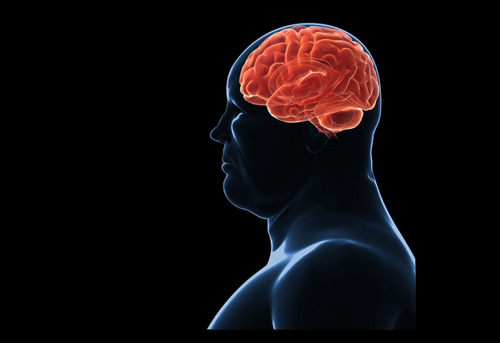The nucleus accumbens (NAc) is a brain region that plays a key role in reward, motivation, and addiction. The NAc is rich in endocannabinoids, which are critical for many physiological functions that regulate human health. An imbalance in the production of endocannabinoids, or in the body’s responsiveness to them, can lead to clinical disorders, including obesity as well as neurodegenerative, cardiovascular, and inflammatory diseases. Researchers from the University of Montreal Hospital Research Centre (CRCHUM) have now discovered in mice that targeting an enzyme in the brain that degrades a key endocannabinoid molecule could help fight obesity.
The findings are published in Nature Communications in an article titled, “ABHD6 loss-of-function in mesoaccumbens postsynaptic but not presynaptic neurons prevents diet-induced obesity in male mice,” and led by Stephanie Fulton, PhD, a CRCHUM researcher.
For years, Fulton and her team have been unraveling the mechanisms in the human nervous system that control people’s need to eat and engage in physical activity and how their metabolism affects their mood.
In their new study, first co-authors David Lau, a University of Montreal doctoral student, and Stephanie Tobin, PhD, a former postdoctoral fellow, show that body-weight control in mice is strongly modulated by neurons in the NAc.
The team discovered the enzyme ABHD6 degrades a key endocannabinoid molecule known as 2-arachidonoylglycerol (2-AG).
With the discovery in 2016 that whole-body inhibition of ABHD6 reduced body weight and protected against diabetes—a finding made by the team of Marc Prentki, a researcher at the CRCHUM—the question arose as to what this enzyme does in the brain to affect appetite and body weight.
“We expected that increasing 2-AG levels would stimulate food intake by increasing cannabinoid signaling, but paradoxically found that when we deleted the gene encoding ABHD6 in the NAC in mice, there was less motivation for food and greater interest in physical activity,” said Fulton.
“The mice chose to spend more time on a running wheel as compared to the control group which became obese and lethargic.”
By injecting a targeted ABHD6 inhibitor into the brains of mice, her team was able to completely protect them from weight gain and obesity.
The ability to target specific neuronal pathways in the brain to control weight is crucial for scientists today. Depending on the area of the brain targeted, inhibiting ABHD6 can have opposite effects.
In 2016, Fulton and her CRCHUM colleague Thierry Alquier, PhD, showed that blocking ABHD6 in certain hypothalamic neurons made mice resistant to weight loss. However, in the current study, the authors show that brain-wide inhibition of this molecule has a net effect of diminishing weight gain on a high-fat diet.
“In our study, we also show that mice in which the gene encoding ABHD6 has been inhibited do not show signs of anxiety and depressive behavior,” said Fulton.
While ABHD6 drug inhibitors are being screened, further work is needed to determine if the mechanisms targeted by the researchers in mice will be the same in humans. However, the team’s latest work helps pave the way for therapies to fight obesity and metabolic disorders such as type 2 diabetes.



